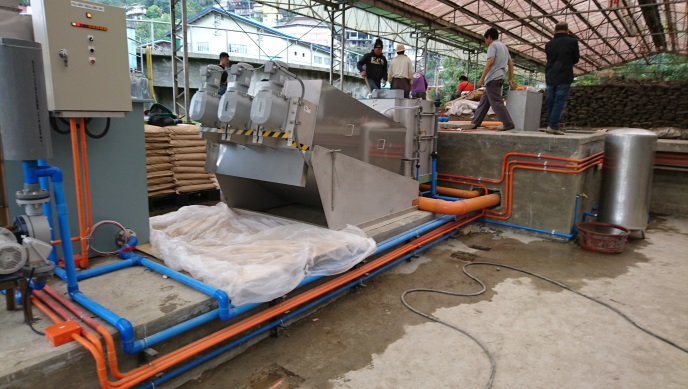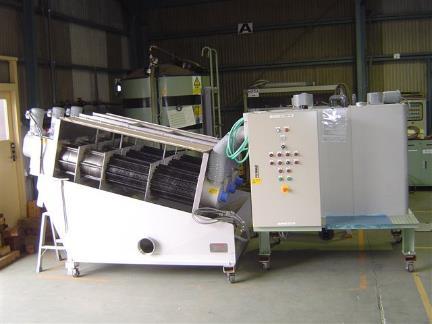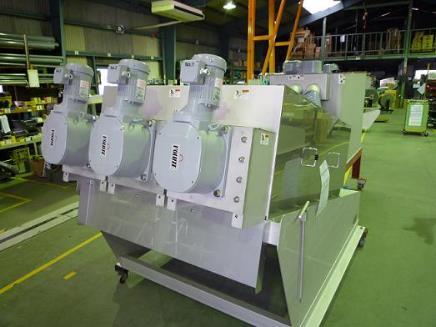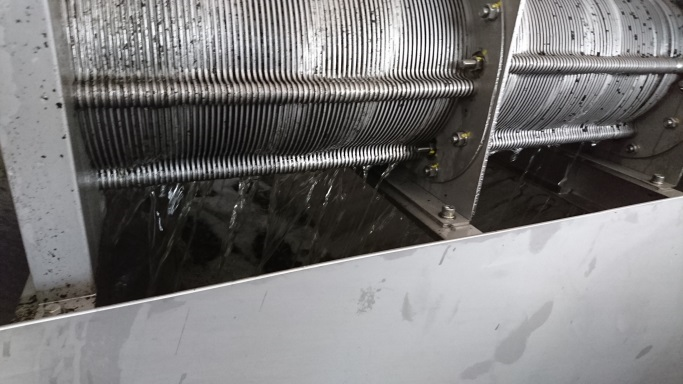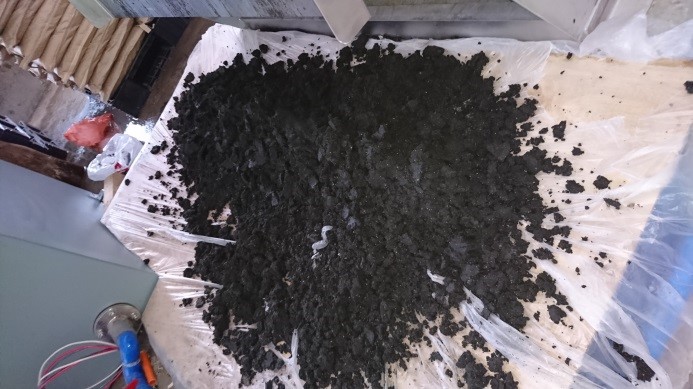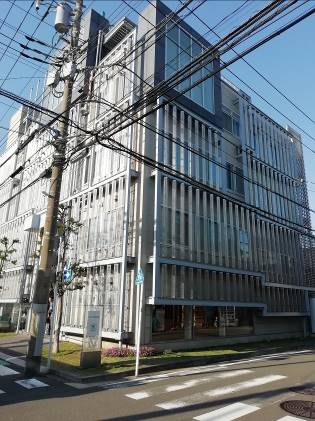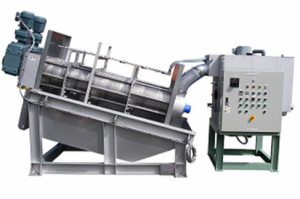

1 Business
Delivery of sludge dehydrators to public sewage treatment plants and private plants
2 Country, region (city, etc.)
Republic of the Philippines (Cebu metropolitan area, Baguio city, etc.)
3 Contribution to SDGs
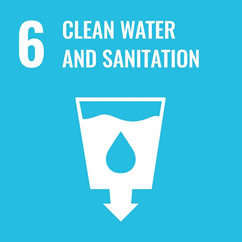

4 Project Results
(1)Urban issues
Cebu city in the Republic of the Philippines does not have sewerage system. Sludge from the restrooms of households and offices is instead stored in septic tanks. These storage tanks are made of concrete and are used to temporarily store wastewater from restrooms. In some cases, the sludge is not fully removed from the tanks and flows into rivers together with rainwater. In other cases, septic tanks are not installed at all and wastewater drains directly into rivers. Once every several years, sludge is removed by cesspit cleaner trucks. However, even when the sludge is removed by these trucks, the sludge from the septic tanks (septage) is not properly processed and is directly dumped at waste disposal sites. These activities result in the pollution of rivers and underground water reservoirs and this is becoming a major urban issue due to the adverse health effects.

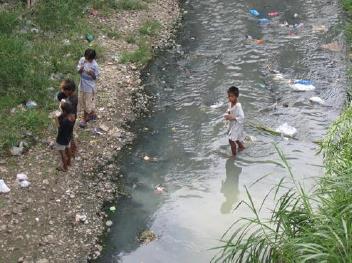
In March 2012, the City of Yokohama signed a Memorandum of Understanding with the City of Cebu on technical cooperation for sustainable urban development. In July of the same year, Yokohama, together with 21 companies—including Amcon Co., Ltd. (a member company of the Yokohama Water Business Association*1)—conducted a joint survey aimed at supporting the resolution of urban issues in Cebu.
Amcon Co., Ltd. (hereinafter “Amcon”) utilized the local needs information obtained through this survey and its network with the Cebu city authorities to apply its sludge dehydrating technology. From FY2012, the company implemented the JICA SME
*1) The Yokohama Water Business Association is an association composed of the City of Yokohama, companies, and organizations, established as part of the Y-PORT Project. It aims to revitalize the local economy by addressing water environment challenges in developing countries and other regions, as well as by expanding business opportunities for companies based in Yokohama.
Overseas Business Promotion Program (Project Feasibility Study), and from FY2013, it carried out dissemination and verification projects.
(2)Urban solutions of AMCON
In the JICA dissemination and verification project, Amcon’s dehydrating equipment was confirmed to be highly effective in the treatment process of septic tank sludge pumped out by vacuum trucks, due to its ability to efficiently separate solids and liquids and its resistance to clogging. The City of Yokohama also provided technical cooperation to Cebu city officials during this project by explaining the system for sludge removal from septic tanks in Yokohama and receiving site visits to facilities in the city, to support the enforcement of sludge treatment regulations in Cebu.
In this dissemination and verification project, technical seminars were held for the Government of the Philippines, local governments, and private companies. Through these seminars and related activities, the company’s technology attracted significant interest not only from Cebu City but also from the Department of Public Works and Highways of the Philippines, other local governments across the country, and private entities such as food processing plants.
(3) Project Outcomes and Commercialization Achievements
As a result of the JICA dissemination and verification project in Cebu City, the company’s technology received high recognition from the Department of Public Works and Highways (DPWH) of the Philippines. This led to the first-ever delivery of its equipment to a public sewage treatment plant in the country. Subsequently, the company succeeded in supplying its products to two public facilities—the sewage treatment plant in Baguio City and the sludge treatment facility in Tarlac City—marking a significant achievement in expanding its overseas market.
At the Baguio City sewage treatment plant, the reported project outcomes include:
- Reduction in sludge treatment (natural drying) time – the process, which previously required about two months to dry sludge for the preparation of compost for sale, was greatly shortened.
- Improvement in on-site hygiene – after the sludge was brought into the facility, the occurrence of foul odors and flies was significantly reduced.
In addition, the dissemination and verification project in Cebu also led to the adoption of the technology by private facilities. It has since been introduced to a wide range of industries, including local food processing plants, chemical companies, electronics manufacturers, and automobile manufacturers.
In recent years, one example of dissemination to private facilities is the adoption of Amcon’s technology as a replacement for existing equipment at eight plants of a global beverage company in the Philippines. These plants had previously used centrifugal dewatering machines, which rely on high-speed rotation of sludge within the unit. However, due to the large amount of electricity consumed, operating costs were significantly affected in the Philippines, where electricity rates are high.
In contrast, Amcon’s sludge dewatering press features a mechanism in which the rings rotate slowly, at only two to four revolutions per minute, resulting in low power consumption. It is also characterized by simple operation and minimal routine maintenance requirements. The only daily tasks required of operators are refilling polymer flocculants and replacing the dewatered cake containers, eliminating the need for continuous monitoring during operation. These advantages have contributed greatly to reducing operating costs.
Amcon’s sludge dewatering technology contributes not only to the improvement of the water environment in the Philippines but also to the reduction of greenhouse gas emissions by lowering energy consumption. Further expansion of its application is anticipated in industries with high volumes of sludge discharge, such as the hotel sector.

